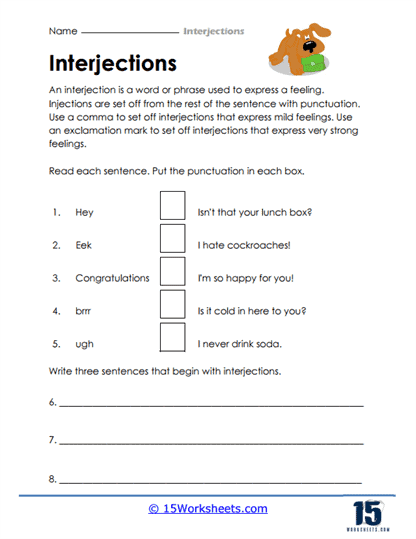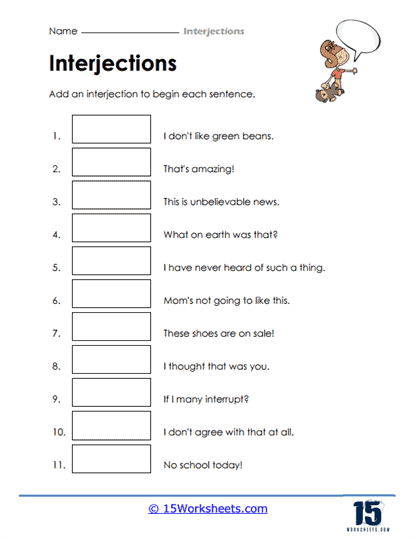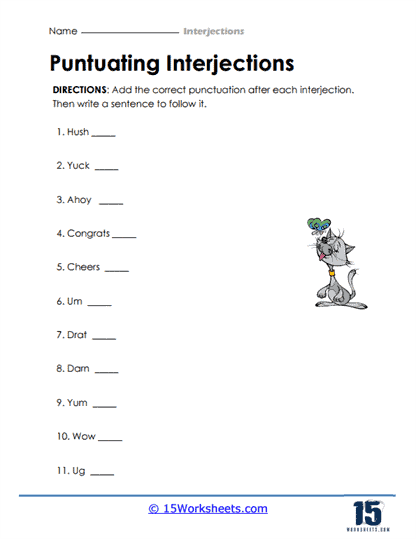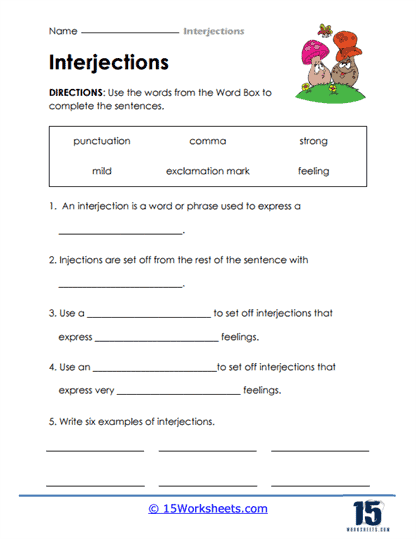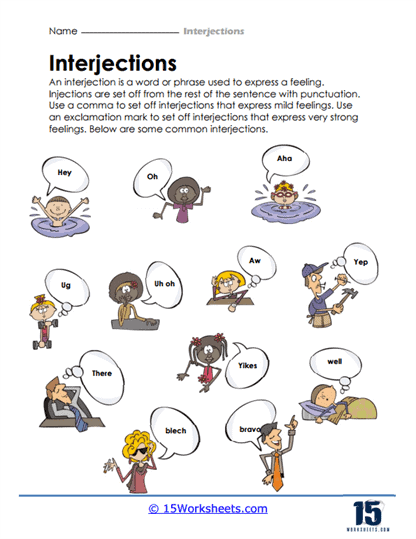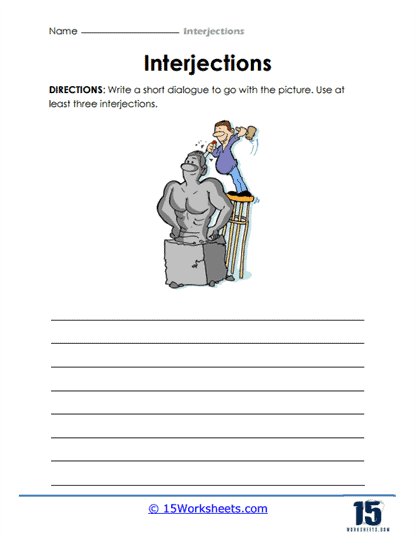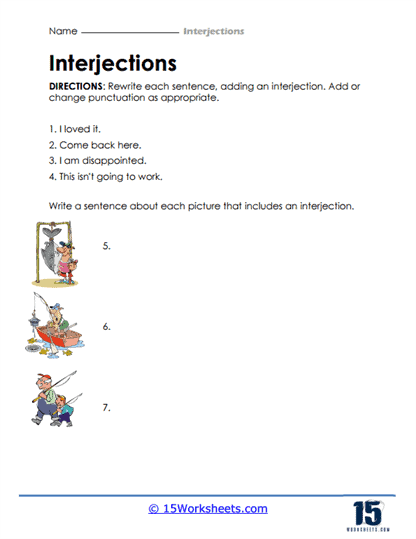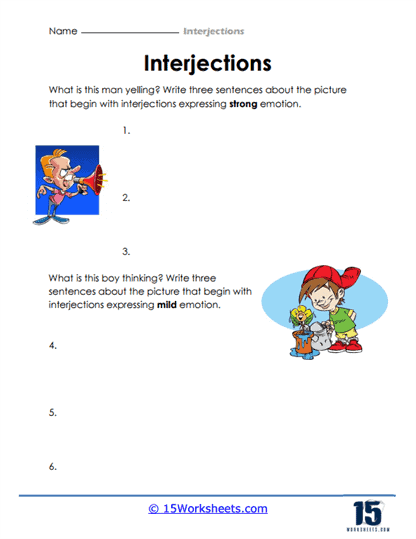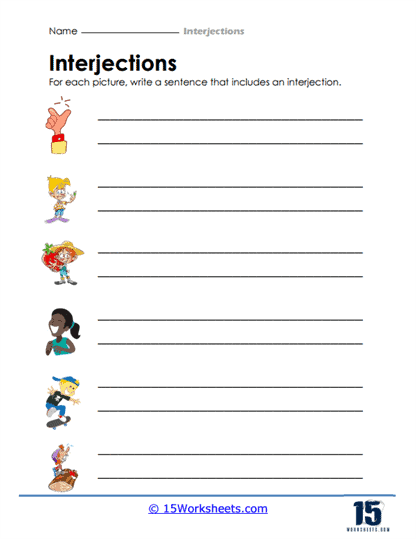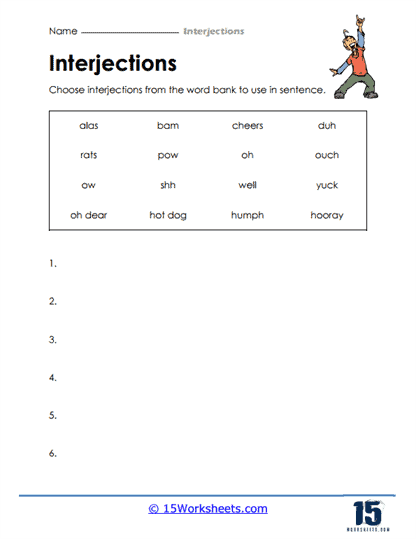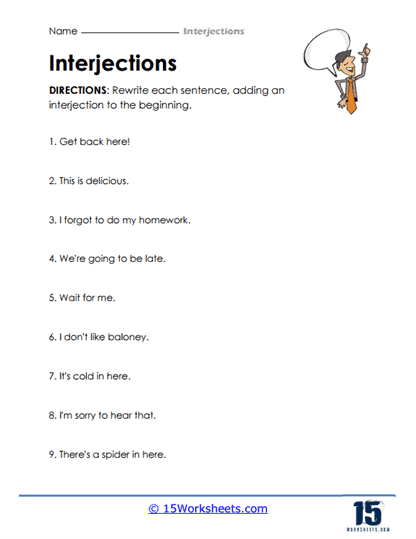Interjections Worksheets
All About These 15 Worksheets
These worksheets are an effective way for students to practice using interjections, which are words or phrases that express strong emotions or feelings. They include a variety of exercises and activities designed to help students identify, understand, and use interjections in context.
The first worksheet in this collection includes an explanation of what interjections are, along with examples of how they are used in sentences. This is a good starting point for teachers who want to introduce the topic to their students first.
Through these worksheets, students will show just how much of an understanding they have regarding the structure and function of interjections and how they can be used in various contexts. They will also:
- Learn how to punctuate interjections properly;
- Create their own sentences that begin with or use interjections;
- Know the meanings of different interjections and use them appropriately and various contexts or sentences;
- And understand how different interjections express varying heights of emotions.
Overall, these worksheets on interjections aim to help students develop their language skills by providing engaging and interactive exercises that promote both comprehension and production of these expressive and impactful words.
What are Interjections and why do they matter?
Interjections are words or phrases that are used to express strong emotions or feelings, such as surprise, joy, pain, or frustration. They are often used in speech and writing to convey the speaker’s attitude or tone and to add emphasis or nuance to a message.
Examples of interjections include “Wow!”, “Ouch!”, “Hurray!”, “Oops!”, “Yikes!”, “Aha!”, “Geez!”, and “Oh no!”. Interjections are typically used in isolation or as part of a larger sentence, and they are often punctuated with an exclamation mark.
Interjections matter because they add color, flavor, and emotion to language. They can help speakers and writers convey complex ideas and feelings in a concise and powerful way, and they can also help to create a sense of connection and empathy between the speaker and the listener or reader.
Moreover, interjections play an important role in communication by helping to clarify the speaker’s intent and emotional state. For example, the interjection “Sorry!” can be used to express regret or apologize for a mistake, while the interjection “Yahoo!” can be used to celebrate an achievement or express excitement.
In short, interjections are a fundamental part of language that allow us to express ourselves in a more nuanced and engaging way, and they can help to enhance our ability to communicate effectively with others.



